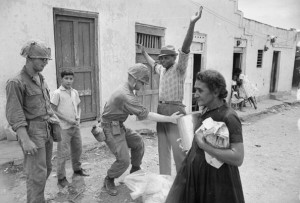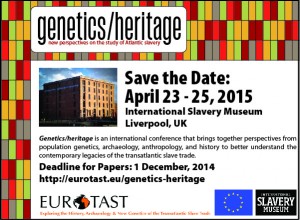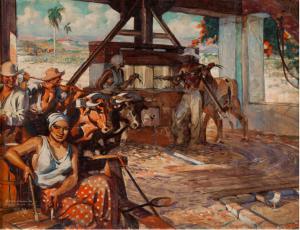Caribbean Military Encounters
Editors Shalini Puri and Lara Putnam invite papers for a multidisciplinary humanities anthology that explores the Caribbean as a militarized region.
CFP deadline: Proposals due 15 December 2014; full papers due 31 May 2015

From the CFP:
We hope to include essays from disciplines such as Art History, Cultural Studies, Literature, Media, Musicology, and Performance Studies. Some essays might explore cartoons, art, music and literature that touch upon the militarization of everyday life. Additionally, the collection will include testimonies and personal narratives gathered from Caribbean citizens and foreign and Caribbean military personnel. We especially welcome contributions that draw on illuminating anecdote, narrative nuance, texture, and voice.
Our focus on lived experience, everyday life, and artistic and political cultures from across the numerous language areas of the Caribbean and circum-Caribbean distinguishes our approach from that which is dominant in Policy Studies and Security Studies. Our approach also differs from those strands of leftist or nationalist scholarship in which resistance to militarization has taken the form of a reluctance to explore the topic except via “agonistic narratives” (Neptune, Caliban and the Yankees 11) that highlight opposition and sidestep complicity, co-implication, and reluctant or strategic participation. We are as interested in the creative ways disenfranchised populations claim the precarious possibilities militarization offers as we are in opposition to militarization expressed in the arts, everyday life, and organized politics; practices of complicity as well as of critique.
Please send indication of interest, 500-word proposals (or longer work), contact information, and bios of 75 words by 15 December 2014. Consideration by editors for inclusion in the volume will be based on the complete paper, which will be due 31 May 2015. Final acceptance will depend on peer review.
Above adapted from emailed CFP
Proposals and papers should be sent by email to [email protected]




